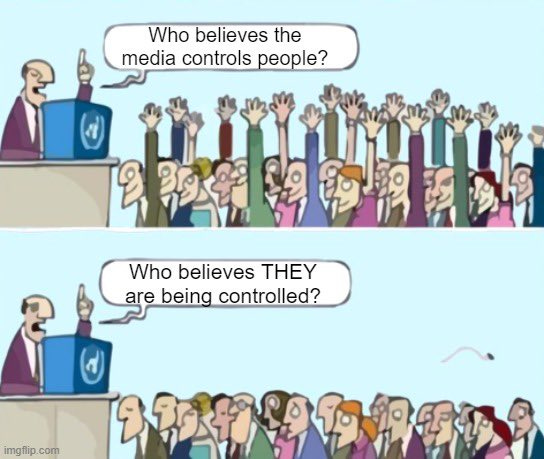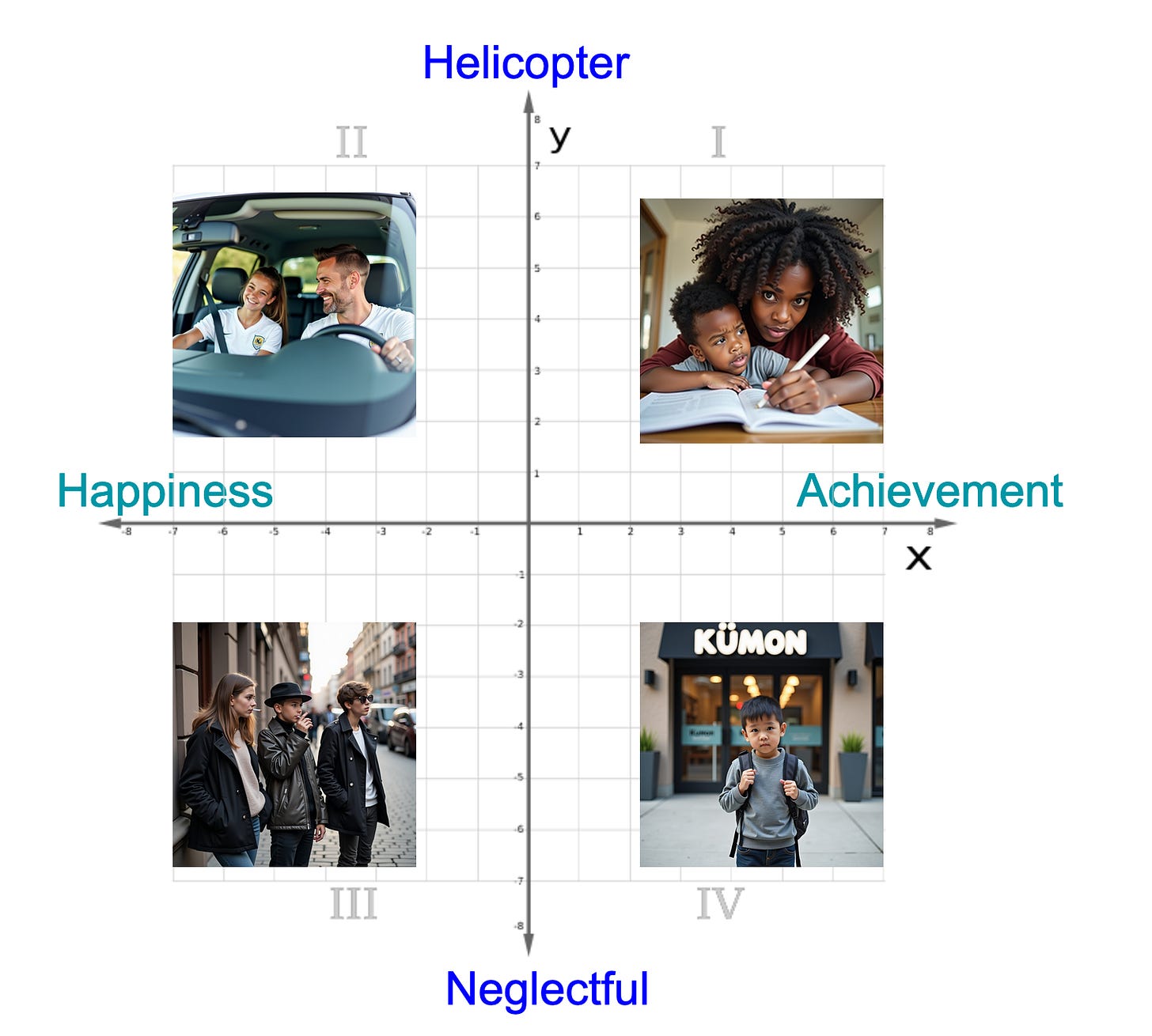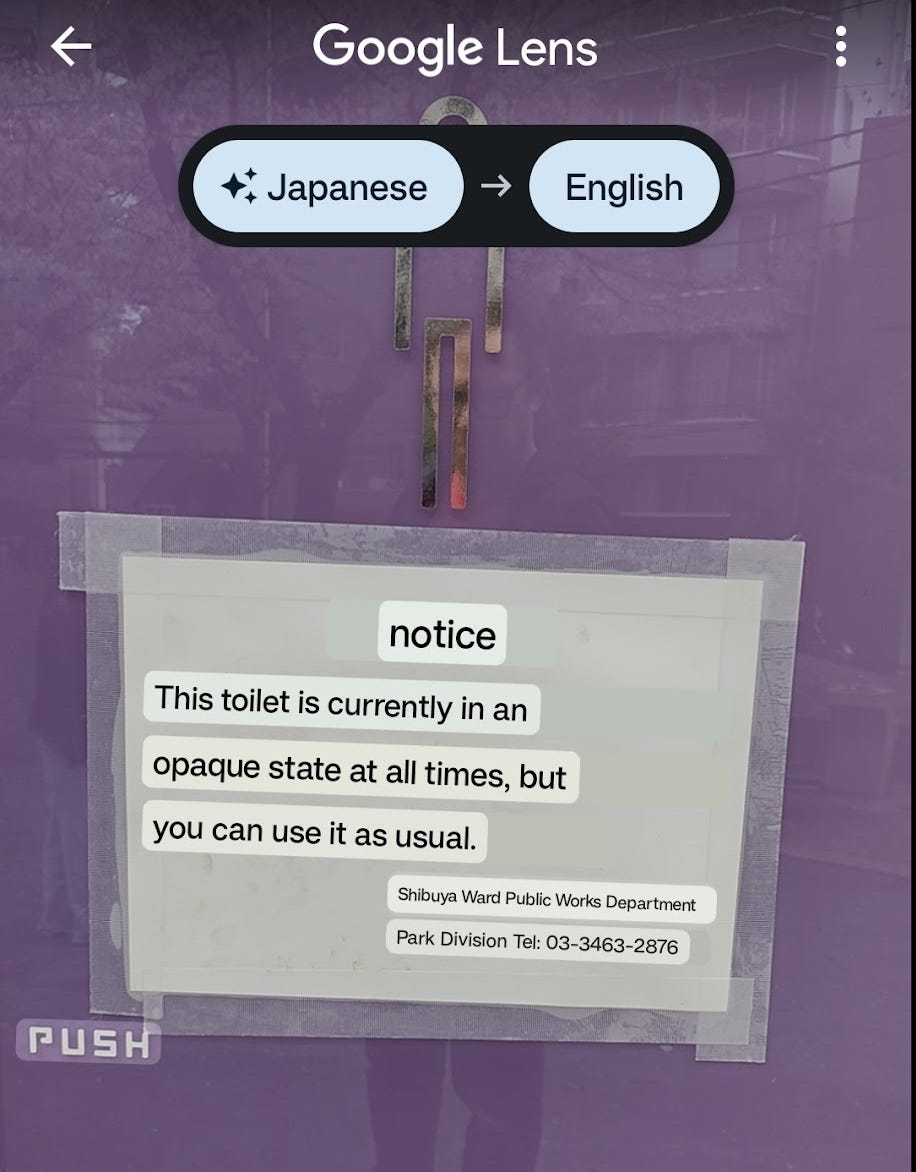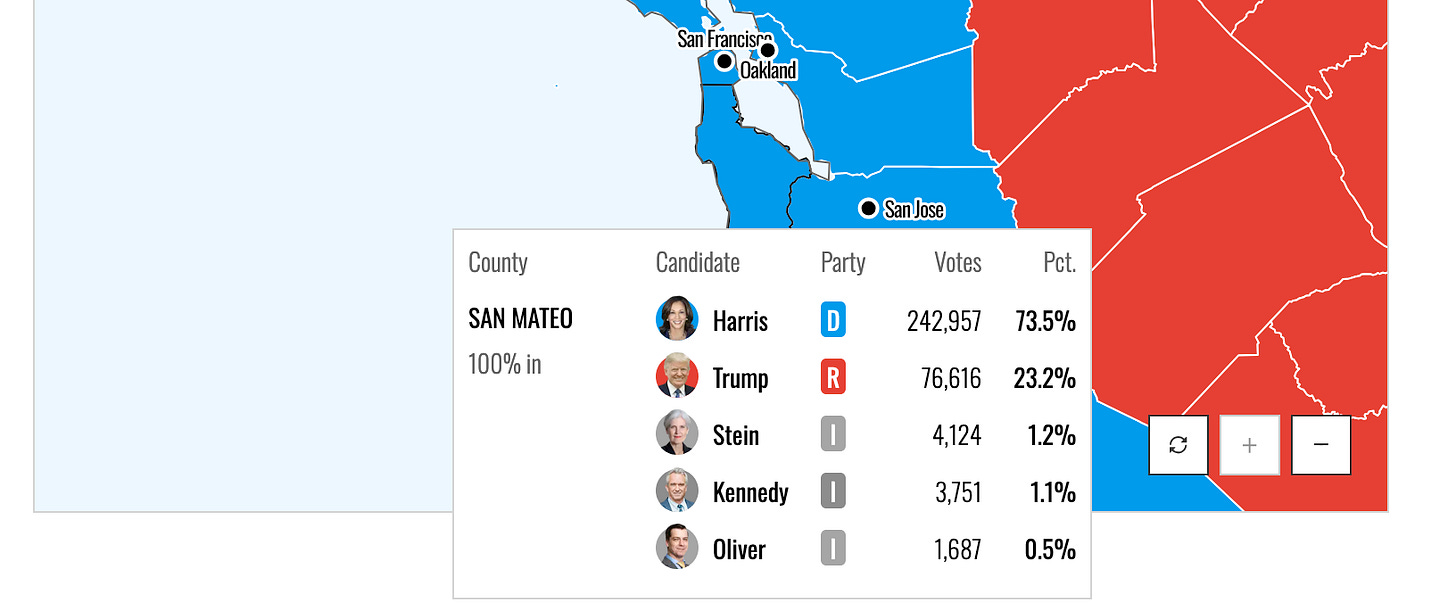Emailing Through a Tsunami Warning
Plus: The future of the news; how to pick a foreign language for your kid to learn; and why Silicon Valley turned right (and didn't)
Last Thursday was very strange. I was at work when everybody’s phone shrieked simultaneous: “TSUNAMI WARNING.” Not a tsunami watch, a tsunami warning. As in, everyone needs to evacuate from the entire San Francisco peninsula.
Nobody moved. At my startup office, everyone kept working even though our phones had warned us of a mass-casualty event heading our way. I only know one person in the Bay Area who heeded the warning. What have they done to us?
If you’re on BlueSky, I’d love to connect with you. I had a pretty good post the other day.
How are we going to get our news in a few years?
Over Thanksgiving, my dad told me that I write a lot about how people get news and information today, but nothing about where it’s going. This is no accident: One theme you may have noticed here in Rangelife is that nobody knows the future. People plan, God laughs.
People who still watch TV news also still believe that it’s how humanity constructs reality. Scan any online commentary, and you’ll see Fox people accuse everyone else of being brain-poisoned by CNN and MSNBC, and vice versa. But the modern reality is that only around 10% of Americans are watching national news on TV each day, which means that close to 90% aren’t. We get our brain poison elsewhere.
My dad posited that an independent news media was likely the last alternative to “state media.” He was reasonably concerned that a Trump administration unconstrained by laws could bully media into compliance.
Now, we’ve never really had state media here, aside from Voice of America, which is international propaganda not intended for domestic consumption. (Although Trump wants to ruin it with another crazy person.) American mass media has also tended to defer to official points of view during times of crisis.
While many news outlets tend to be biased toward the political leaders who align with their ownership and their audience, American media ultimately serves its shareholders. Lawrence O’Donnell isn’t praising Joe Biden every night on MSNBC because he’s serving the state, but because he’s delivering an audience for NBCUniversal.
Even Elon’s X is only “state media” as it serves Elon’s (possibly short-lived) role in the Trump administration. X is really Elon Media — he paid $44B for it, and he rebuilt the platform so it revolves around his account. (Trump has his own platform, too, but it’s more just a legal conduit for laundered bribes.) If you’re not in the cult of Elon, you might have quit X by now. If you are in the cult of Elon, God help you, Scottie Pippen.
We don’t have mechanisms for the government to create state media in the USA, and people wouldn’t consume it anyway. Certainly the collapse of local news has been predictably devastating for local accountability and governance. For decades we counted on local journalism to investigate powerful people, but those journalism jobs depended on a highly inefficient advertising market that started declining more than 25 years ago.
The alternative to paying for news is getting it for free. You can certainly scrape plenty of real news from the internet, but it takes work. Most free “news” is a game of Telephone where every player along the chain has their own selfish incentives: a pointed TikTok about a hot take about a tweet that misrepresents the paywalled article that nobody read.
We’ve also seen a tremendous volume of creative destruction in the media over the past 15 years. It’s comical that Salon.com was ever considered a tech company worth $107 million, but since then we’ve seen countless new media rise, collapse, consolidate, and succumb to private equity enshittification. It costs very little to put content on the internet, but quite a lot to make it a business.
Why is it so hard to predict where news is going? I haven’t even seen compelling visions of future media in science fiction. In The Expanse, people have colonized the solar system but they still learn about current events via a “feed” that looks like CNN. Star Trek still has news anchors sitting at desks, too. Even Minority Report somehow anticipated holographic gesture-based interfaces and self-driving cars, but also assumed that you’d get a thick newspaper delivered fresh to your driveway every morning, and that a scoop on the front page could bring down a beloved government program.
Let’s assume that certain trends continue, including the replacement of search with AI queries and the deterioration of the advertising environment. Today many people are already comfortable with AI agents like ChatGPT doing their reading, writing, and arguing online for them. I can see news becoming ever-more conversational, where you open your phone’s built-in AI or maybe a news aggregator and ask “what happened today?”
A decade (or sooner) from now, a customer of AppleNews could ask it to create a curated morning news show featuring information from preselected sources and topics, and have a synthetically created influencer either read it to them or have them watch it… None of this is science fiction -- you can pretty much do all of these things now, albeit poorly. In time, it won’t just be possible — it will be second nature. As such, it will be a big change in how the information ecosystem on the internet has worked so far. These new technologies give us an opportunity to have more personalized, dialog-centric control over the information.
Caveat (1): merely operating generative AI requires setting a lot of money (and the planet) on fire, even more than journalism. Caveat (2): Many of these future visions of the news are still stuck in the Silver Age of TV: I’m going to watch somebody read me the news, even if that somebody is synthetic. Caveat (3): Somebody is still going to need to pay people to report the news. AI can write, but it can’t investigate.
I feel most confident that news is going to become more like TikTok or YouTube than it is CNN — a platform gets to know you and algorithmically serves you a feed. If the last 20 years of personalizable apps have told us everything, it’s that people don’t want to spend time setting things up. Simple and easy win every time.
But we also may soon lose sight of “news” completely, as journalism, opinion, fiction, and information become forms of content that mix with everything else. Which is basically what most people experience on social and video sites today! YouTube, Instagram, and TikTok have rapidly torn down the barriers of expertise required to create engaging video content. Any schmuck can create all manner of pro-style video, some of which will be “news.”
Ultimately, news is going to be about trust. Quite often someone shares a contextless video and asks “why won’t the media show you this?” and the answer is because some media still has the good habit of verifying and contextualizing a video before they share it, unlike SouthBayDogMom81 who won’t bother to (and probably can’t) fact-check it.
Again, almost all predictions about the future of information and entertainment end up hilariously wrong. I recently dug up and read some “future of social media” and “future of TV” predictions from the early ‘10s. If you were to believe them, we’re spending all day in Facebook group video chats with our social graphs, teenagers are addicted to their iPads, and TV shows have a ticker of hashtagged tweets running across the screen even during the commercials, which we watch attentively.
So I’m probably incorrect about all of this, too. And that’s why I don’t make predictions, and you shouldn’t read articles by anyone trying to predict anything, ever. That includes Rangelife from a few weeks ago when I predicted what the Trump administration was really going to do. Those will be all wrong. Joke’s on you!
Which language should your kid study in 2025?
As a parent, I’m fairly consumed with assuring that my kids grow up to be happy, emotionally balanced, and well-rounded. I’m also supposed to be concerned that they achieve and develop the skills to be economically viable in an unknowable future.
I think most people view “emotionally balanced and happy” and “successful” as two ends of a spectrum. But parenting isn’t really a one-dimensional line. There’s a second dimension, which is “how much control and supervision am I trying to exercise?” Here, I mapped it into a 2x2. We’re all management consultants here, right?
Everybody’s going to have a different style, and they tend to inherit a lot of that style from their parents whether they like it or not. My wife and I have ended up hewing pretty closely to the center of the map. Oh, your grades are fine? Yes, sleep over at your friend’s house. Oh, you hate that activity I signed you up for? Let’s find something else you’ll like more.
When my son started high school a few months ago, he had a choice of electives he could take, and he picked Japanese, which his older sister had taken at the same school. Their grandmother was a post-war immigrant from Japan, so their interest is more personal than the anime fans in their class.
Of all the major languages you could learn in America in 2025, Japanese probably has the highest degree of difficulty compared with its utility. It’s the world eighth-most-spoken language but only used natively in one (shrinking) country.
Now, my son could have taken Spanish. For an English speaker, Spanish is one of the easiest languages to learn. It’s also spoken by about 5x as many people as Japanese, and it’s the official language of 20 countries, with significant populations in other countries including ours. It’s also spoken in the households of many of his high school classmates.
After four years of high school Spanish, you’re likely to be more fluent and confident communicating with native speakers than four years of Japanese. I can still fumble my way through a rudimentary conversation even decades after my last class.
But does competence matter anymore? Language fluency is quickly being supplanted by AI-powered real-time translation. For anyone traveling abroad the past few years, Google Translate has been like a little miracle. But that was just the beginning. Microsoft is testing real-time translation in your voice in Teams. Google is also promising to translate YouTube videos, also in the voices of the speakers. Apple Airpods are now hearing aides and real-time translators.
In other words, a foreign language, as a skill, is about to be profoundly devalued. But learning a language has other benefits, including neuroplasticity, empathy, and the ability to more deeply understand a different culture. So it could be that learning a language soon becomes more like learning a studio art or a musical instrument. It’s not that you’ll use drawing or guitar in your career, but you’ll enjoy them and use your newly elastic brain to get smarter all the time.
So learning Spanish vs. Japanese becomes not about which language will be more useful in adulthood, because soon the whole world will be dubbed, captioned, and annotated for our convenience. It becomes about how your mind stretches to learn new perspectives. By all means, encourage your kid to learn Norwegian, Arabic, Korean, or Malagasy. It’s all good for them.
Northern California Kremlinology
Now that we have a month of hindsight for the 2024 election, many people are trying to answer the question “why did Silicon Valley turn right?” as if that’s something that happened.
One thing you don’t hear about so much: Kamala Harris won Silicon Valley counties by 40%-53%, some of the most extreme margins in the USA. But the most visible people in the tech industry (only some of which is in Silicon Valley) are the CEOs and venture capitalists who tweet and go on podcasts. Yes, many rallied to Trump in 2024.
A lot of people who don’t work here are failing to understand why CEOs and VCs made this heel turn even as their employees overwhelmingly donated to and voted for Harris. It’s all mystifying because many of Trump’s promises, especially on immigration and trade, are potentially quite bad for the industry.
So here are the two real reasons why the VCs and CEOs flipped to Trump in 2024:
(1) The business model of venture capital is funding portfolios of startups. For the last 20 years, getting acquired by one of the behemoth tech companies was the most likely pathway to an exit. But Biden’s FTC finally started cracking down on some of Big Tech’s anti-competitive practices, killing some high-profile acquisitions and even starting the process to break up Google. This is great for consumers and other businesses, but devastating to the VC business model, which depends on oligopoly money to keep buying their startups.
(2) COVID was really tough on VCs and CEOs, especially those with manufacturing operations. Elon, who was actually still a Silicon Valley guy when COVID hit, tweeted incessantly that COVID wasn’t that bad, and that his workers preferred to risk their family’s health permanently to continue building cars on his California assembly line. COVID reminded some of America’s most powerful men that this country has something more powerful than their money: the state. And they want to make sure that the state can never wield this power over them again.
Rangelife Shorts
The UnitedHealth CEO assassin is not the hero we need. Assassinations, however, tend to be disturbingly effective agents of social change, and the reaction to this murder has revealed that people across the political spectrum are profoundly unhappy with the private insurance system. Seems like a cogent political issue! If our political system weren’t preparing for corrupt oligarchic fascism, this would be a tremendous moment to pick up the cause of radical health care reform. Since our political system seems incapable of regulating industries, it’s natural that fed-up citizens would eventually “regulate” them with guns. What if the future of American civil unrest isn’t political violence, but economic vigilantism?
Bear with me for a second. The Atlantic’s cover story last month was “How the Ivy League Broke America” by David Brooks. But the headline doesn’t do the story justice. It’s about what went wrong with the broader American education system, and Brooks shines a light on some innovative solutions that are already driving progress. It’s absolutely worth a read.
We’re just like Rome in the second century BCE! I think we need to stop talking about billionaires and start referring to them as oligarchs. Today’s rich people are significantly richer and more powerful than rich people 50 years ago or even 20 years ago. To wit: Elon just bought a stake in the federal executive branch for about $170 million, which is only about 0.05% 0.04% of his available wealth. He spent it on political activities that either are illegal or should be illegal, with the assurance that people aren’t prosecuted for crimes like this, especially if their beneficiary is Donald Trump. And Musk only of one a whole class of people — some self-made, a lot of heirs — with net worth over $10 billion. Some of them are going to make policy starting next year. They all think they’re Luke Skywalker, but they’re really his old man.
The Economist’s word of the year is kakistocracy. I first learned this word, meaning “rule by the worst people,” in a late 2016 article about the incoming Trump administration. If you look at Trump’s cabinet nominees this time, it’s clear that 2017 wasn’t true kakistocracy. We thought he’d been scraping the bottom of the barrel, but the barrel is a construct, and there are plenty of worms and critters below the barrel to put in charge of national security and regulatory agencies.
Speaking of critters below the barrel:
Hegseth says letting LGBTQ soldiers serve openly reflects a “Marxist” agenda. Pete Hegseth allegedly drugged and raped a woman who was attending a Republican women’s conference with her husband. But he claims he had consensual drunken sex with the woman attending the Republican women’s conference with her husband. My point is, he attended a Republican conference, and I’m begging whoever runs Republican conferences to do at least one session about what words like “Marxist” mean.
RFK’s major policy ally has been trying to get the FDA to revoke approval of the polio vaccine. If I were ruthlessly trying to weaken a powerful foreign adversary over the long term, I’d try to figure out to deny people vaccines. Trump is here to help.
Kari Lake to run Voice of America. This is like putting a mentally ill anti-vaxxer in charge of the FDA.
We’re going to war with Canada? This is all a bit, right? Do you remember anyone mentioning this during the campaign? Who voted for this?
Yacht Rock Dock. Two weeks ago, HBO released a 90-minute documentary about yacht rock, and it’s a blast. Yacht rock is a posthumously-named genre that probably isn’t a genre at all, but just a way of classifying a particularly smooth production style that took over the industry in the years around 1980. This music was very much for the Young Adult Boomers, and when I finally started listening to the radio and buying my own records, it all sounded stale and corny. For some people it still sucks. But this is a delightful documentary about a very particular and under-examined time in American pop music. I completely believe that Thundercat is a committed Michael McDonald fan.
Yacht rock still doesn’t feel like the right name for it. As Christopher Cross explains in the film, he wrote “Sailing” because his friend would take him sailing off the Texas coast when he was younger. “If he had taken me bowling, the song would have been called ‘Bowling.’”







Yeah, it has seemed to me that the main objection to the genre of "yacht rock" is the name and its implications more than the category grouping, with a lot of the musicians and fans just don't like being associated with rich white guys on yachts, which I get. The documentary itself made me think two main things: 1) perhaps given the prevalence of the word "fool" in the genre, it should called "fool rock" or "rhythm & fool" or something, and 2) Ringer pop culture commentators are kind of bad and shouldn't be allowed to do these things when they don't actually have deep knowledge of the subject matter. I say this as someone who was in a Steely Dan tribute band for a couple years as a favor to some band friends, so I wasn't familiar with the music before, but had to learn a lot about the whole genre as a result.